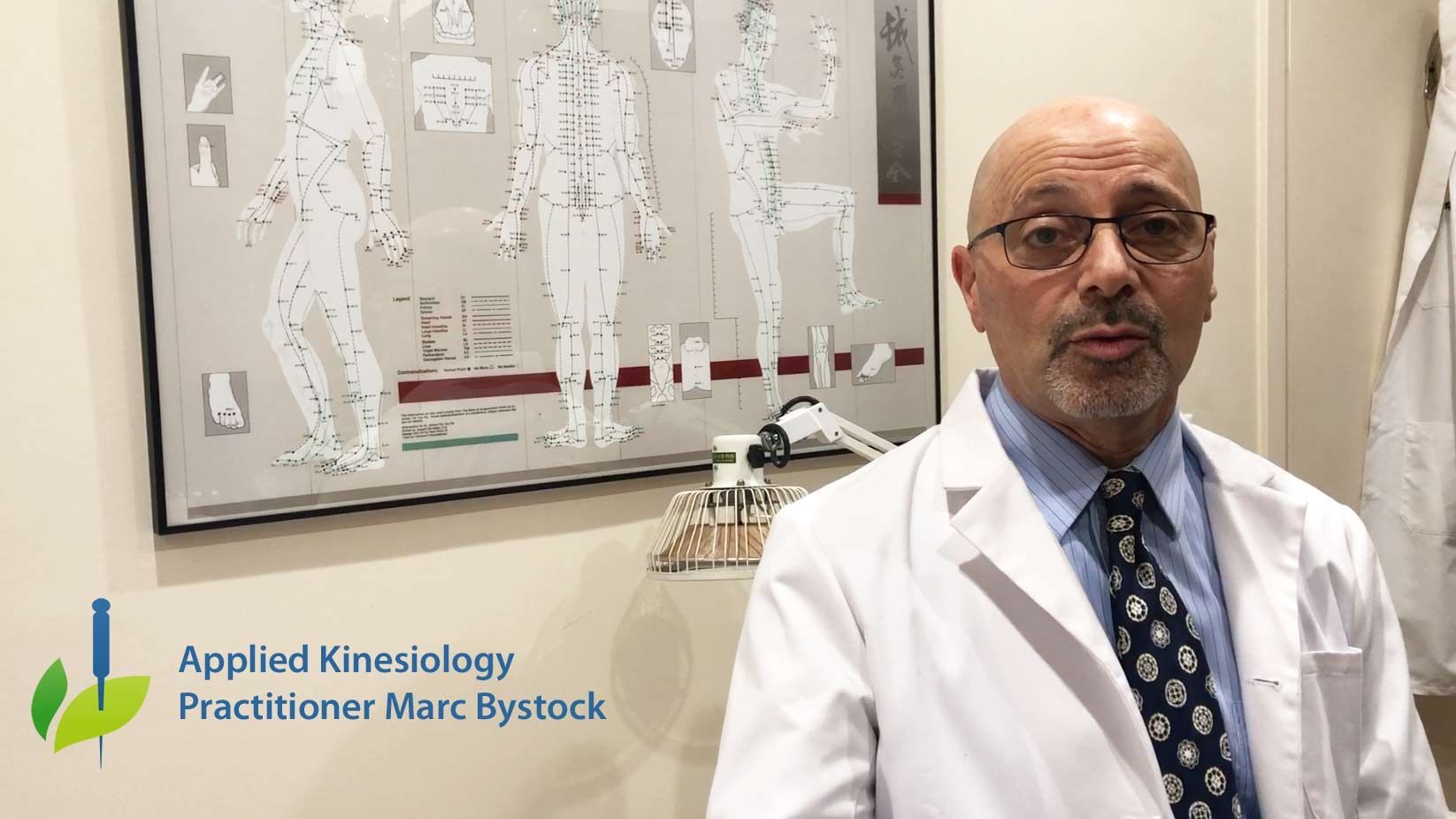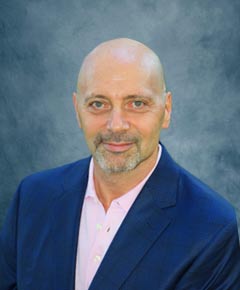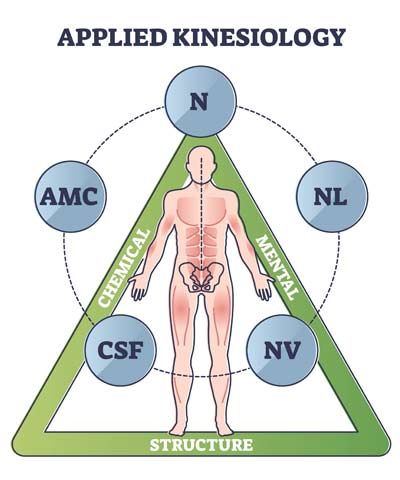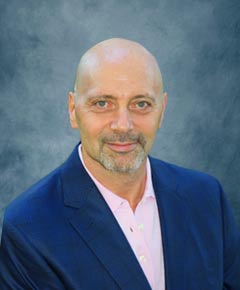Applied Kinesiology NYC by Marc Bystock L.Ac.
"A huge trend of people are turning to holistic approaches that address the body as a unified system rather than an assortment of isolated parts. Applied Kinesiology (AK) stands out as one such approach, blending the principles of chiropractic care, traditional Chinese medicine, and other disciplines to provide a uniquely integrative diagnosis and treatment method."
-Marc Bystock L.Ac.
Applied Kinesiology Practitioner in Midtown Manhattan NY 10016
What is Applied Kinesiology?
Applied Kinesiology is a diagnostic and therapeutic technique that uses muscle testing to evaluate and address the body's imbalances. Practitioners believe that each muscle is linked to specific organs and glands and that weaknesses in muscle strength can signal dysfunction in other areas of the body. By assessing muscle strength and weakness, AK provides a window into the overall health of the body's systems.
Unlike approaches that focus solely on symptomatic relief, AK aims to uncover and correct the root causes of health issues. This is achieved through various treatments, including chiropractic adjustments, nutritional guidance, acupuncture, and more. Overall, Applied Kinesiology strives to treat the body holistically, promoting balance and harmony across all systems.
History of Applied Kinesiology
The roots of Applied Kinesiology trace back to 1964, when Dr. George Goodheart, a chiropractor, discovered the correlation between muscle weakness and organ dysfunction. Dr. Goodheart noted that certain muscle weaknesses could be improved through specific chiropractic adjustments, nutritional supplements, or other therapeutic interventions. This groundbreaking discovery laid the foundation for what would become Applied Kinesiology.
Over the ensuing decades, the practice expanded as subsequent practitioners built upon Goodhart's initial findings. Holistic practitioners from various disciplines began to integrate muscle testing into their diagnostic processes. Organizations such as the International College of Applied Kinesiology (ICAK) were established to provide training, promote research, and standardize practices within the field.
How Does Applied Kinesiology Work?
Applied Kinesiology functions on the premise that muscle testing can reveal underlying physiological and biochemical imbalances. When a practitioner performs muscle testing, they apply gentle pressure to a specific muscle while the patient holds a certain position. The practitioner observes the muscle's ability to withstand this pressure. A "strong" or "locked" muscle suggests normal functioning, whereas a "weak" or "unlocked" muscle indicates a potential issue.
These muscle testing results are not interpreted in isolation. Marc can integrate findings with other diagnostic tools, such as medical history, physical exams, and conventional tests, to form a comprehensive understanding of the patient's health.
For example, a practitioner may observe that a particular muscle appears weak during testing. They might then explore possible causes for this weakness, such as suboptimal nutritional levels, structural misalignments, or even emotional stressors. By considering the body as an interconnected whole, the practitioner can devise a treatment plan that addresses multiple facets of the patient's health issue.
What Can Applied Kinesiology Diagnose?
Applied Kinesiology offers a broad array of diagnostic capabilities. Practitioners can identify issues ranging from musculoskeletal dysfunction to more subtle biochemical imbalances. Here are some of the conditions that AK can help diagnose and treat:
- Musculoskeletal Problems - AK is often used to identify issues such as back pain, neck pain, and joint disorders. By evaluating muscle strength and structural alignment, practitioners can pinpoint imbalances and correct them using adjustments and therapeutic exercises.
- Nutritional Deficiencies - Through muscle testing, practitioners can detect deficiencies in essential nutrients like vitamins and minerals. Based on these findings, personalized dietary recommendations and supplementation can be provided.
- Allergies and Sensitivities - AK can help identify sensitivities to foods, chemicals, and environmental factors. This is achieved by testing muscle response to these substances and creating a plan to avoid or mitigate exposure.
- Organ Dysfunction - The method links specific muscles to various organs. Weaknesses in particular muscles can indicate dysfunction in corresponding organs such as the liver, kidneys, or digestive system.
- Emotional and Psychological Stress - AK can sometimes reveal underlying emotional or psychological issues that contribute to physical symptoms, enabling a more comprehensive treatment plan.
- Chronic Conditions - Practitioners use AK to manage complex, chronic conditions by offering insights that complement conventional medical treatments.
Holistic Treatments vs. Traditional Medicine
Applied Kinesiology is part of a larger holistic approach to healthcare, characterized by its emphasis on treating the individual as a whole rather than focusing solely on disease symptoms. This approach offers several advantages compared to traditional medicine.
AK practitioners devise individualized treatment plans tailored to each patient's unique health profile. This level of specificity often contrasts with the more standardized approaches seen in conventional medicine. Traditional medicine frequently focuses on symptom management, often with pharmaceuticals or surgical interventions. In contrast, AK seeks to identify and treat the underlying causes of health issues, leading to more sustainable improvements.
Holistic treatments in AK often utilize natural and non-invasive therapies, such as acupuncture, nutritional supplements, and lifestyle changes. These methods generally come with fewer side effects compared to pharmaceutical drugs and invasive surgical procedures. One of the hallmarks of AK and other holistic practices is a strong emphasis on prevention. This approach encourages patients to maintain healthy lifestyles and make early adjustments to mitigate potential health issues before they escalate into serious problems.
Many AK practitioners possess training in conventional medicine and use AK as a complementary tool. This integrative approach allows them to combine the best aspects of both worlds, providing patients with comprehensive care that leverages advanced diagnostics alongside holistic therapies.
Contact NYC Acupuncturist Marc Bystock L.Ac. for a Free Applied Kinesiology Consultation
Applied Kinesiology offers a holistic, integrative approach to health, emphasizing the interconnectedness of the body's structural, biochemical, and emotional systems. Originating from Dr. George Goodheart's discoveries in the 1960s, AK has developed into a comprehensive practice that utilizes muscle testing to diagnose and treat a wide array of health issues, including musculoskeletal problems, nutritional deficiencies, allergies, organ dysfunction, emotional stress, and chronic conditions.
Please contact me for a free consultation.
Treatment Hours
- Monday
- -
- Tuesday
- -
- Wednesday
- -
- Thursday
- -
- Friday
- -
- Saturday
- -
- Sunday
- Closed







